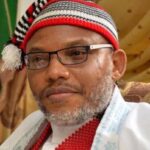
The Chancellor, Lagos State University, Professor Gbolahan Elias (SAN), speaks on the challenges facing the judiciary among other issues with ONOZURE DANIA
You were called to the Nigerian Bar in 1981 and the New York Bar in 1990. How will you compare legal practice in Nigeria and other places where you have practised?
The only other two jurisdictions that I have been exposed to extensively are New York and England. The most fundamental differences between them and Nigeria are the extent of the pedigree of their institutions and the sizes of their economies. For more than two centuries, each of them has had a court system and law firms with succession in their partnerships. For roughly the first century of each of the two systems, the individuals in their courts and their law firms were culturally largely monolithic; which meant that they became cohesive long ago.
Their pedigree means that over time they have developed robust mechanisms for managing the risk of bad behaviours by actors within their respective systems. The sizes of their economies mean that they are far, far better resourced today than we are and have far more depth, headcount, and specialisation in skills than we do. The distance between us and them in pedigree and resources is unfortunate but undeniable. We can and should work to shrink it significantly.
You have authored several papers on arbitration. Doesn’t it bother you that several multinationals prefer to conduct their arbitration outside the country even when the business is in Nigeria?
No, it does not bother me at all. It is not unusual for party A who is contracting with another party B who is resident in another country to insist that disputes arising in respect of the contract be resolved on a neutral territory. There is nothing in this common practice that is inherently disrespectful to Nigeria or to any other country that Party B may reside in. If anything, the availability of dispute resolution on neutral territory often gives the parties enough comfort to conclude deals that they might otherwise be reluctant to conclude at all for fear of being unable to get empathetic justice in the event of a dispute.
Nigerian lawyers are nearly always involved in foreign arbitration that has Nigerian elements as Nigerian law issues nearly always arise in such arbitration. It is inevitable that with such involvement Nigerian lawyers will grow in skill, reputation, exposure and income, and will increasingly begin to take leadership roles in resolving such disputes. This is already happening.
What is your most embarrassing moment in court in your 42 years as a lawyer?
I have an interesting anecdote here. A long time ago, I had a case where I sought an order that the judge, now late, did not want to hear about. I respectfully insisted that the judge should hear my application and put his ruling on the record.
The judge advised me that I should withdraw my application. I respectfully insisted on being heard and getting a ruling on the record, whether favourable or not. Without further comment, the judge simply rose and walked out of the courtroom. I was embarrassed, in disbelief, stunned, and speechless. After the judge had walked out, his registrar, who had witnessed the proceedings, walked over to where I was standing at the bar of the court and assured me that there was nothing to worry about at all. He said that the judge always had respect for lawyers that he had tried but failed to bully and that he was sure that the judge and I would become good friends. The registrar’s prediction came to pass.
You have handled many cases involving Nigeria and foreign firms. What is the overriding outcome of the cases and did they affect the country positively or negatively?
I have had two such arbitration that went in favour of foreign companies against the Federal Government. Enforcing the awards has been challenging, to put it mildly. This is not positive for the nation.
How was your first time in court?
It was during the National Youth Service Corps year as a state counsel in the Federal Ministry of Justice. A customs officer was dismissed and he sued the Federal Government for dismissing him unlawfully. I was fully prepared and eager to press on with the hearing. But there was a power failure on the court premises which was not common in those days. The case was called, but the judge declined to work on that day. He adjourned the case. I was disappointed and frustrated.
What is your view on calls for the extension of judges’ retirement age from 65 to 70?
Recent legislation raised the retirement age for judges to 70 years across the board. I think that that is enough for the time being unless we see dramatic improvements in the administrative support that judges get – fuller digitisation (including the automatic transcription of all oral statements made at court proceedings), having law graduate clerks to assist with research, and so forth. Until such improvements come about, I would advise that the burden of work would be too heavy for most judges over 70 years old.
Some people believe that the Nigerian judicial system is dysfunctional. What is your take on this position?
The system is challenged on many fronts, but I would not say that it is dysfunctional. The challenges are well-known. No “rocket science” is needed either to identify them or to address them. Let me try to summarise them in short order. There are not enough basic studies and other information about the human and facilities economics of the system. There are not enough expert managers and economists in the system.
Judges and civil servants by themselves do not have the skills to do much of the specialised administrative work that needs to be done. Budgetary allocations are too small. Budgetary allocations are often not disbursed quickly enough, or even at all. Electoral disputes consume too large a share of the time personnel and resources in the system. There are not enough judges and courts. A rule of thumb is that you should have roughly 50 judges for every one million people in the general population for a system to work well. Nigeria and many other developing nations have less than 40 per cent of the judges that they need.
Our judges are not paid and looked after well enough. There are too many poorly-resourced courtrooms and administrative offices. (In the eyes of some observers, there have even been a number of weak appointments to the Bench.) There is too much political interference in finance, appointments, promotions, and discipline. The rules allow stays of proceedings pending appeal too easily. The rules also allow appeals on grounds involving fact (as distinct from the law) too easily.
How best do you think these challenges can be addressed?
The challenges can be addressed and major progress can be made fairly quickly. What is needed most are political will and larger budgetary disbursements. Every one of the challenges that I have listed above can be fully addressed where there is both political will and adequate government expenditure.
The presence of those two factors led to game-changing progress in the Lagos judiciary about 20 years ago. There is no reason to imagine they would not work everywhere else in the country. As with many other aspects of Nigerian life, it is frustrating that many major problems that can be easily solved remain painfully unaddressed.
Your law firm is almost 30 years old. What has been the driving force?
Many factors have combined to get us to where we are fortunate to be today. The most obvious ones are talented colleagues, focus, old-fashioned hard labour, resolve, training, resilience, luck, and providence. Time and space too have been important. I have long believed that being a Nigerian living in Nigeria today in itself makes me a winner of an incomparable lottery prize.
What caused the recent change of leadership and appointment of new partners in your firm?
It was time to change. There are younger colleagues who for obvious generational reasons are more sensitive than any previous leadership could ever have been to the changing times, and also more than capable of running the firm superlatively and carrying it to greater heights. Our previous managing partner led us for two decades and performed wonders. Our new leaders have strong practices and more than 30 years of experience with the firm between them.
Why did you change from business to criminal law?
There may be a misunderstanding here. Business law necessarily includes the law exposing businessmen to criminal liability, and we have always been socially responsible. That means that there is no rigid dividing line between business law and the criminal law or shut-out of pro bono criminal defence work.’’
Our “white collar” and pro bono practices may well be more visible today than they used to be, but that is also true of a number of our other practices. It does not mean that we are now doing anything that is either truly new to us or that suggests a change of focus.





